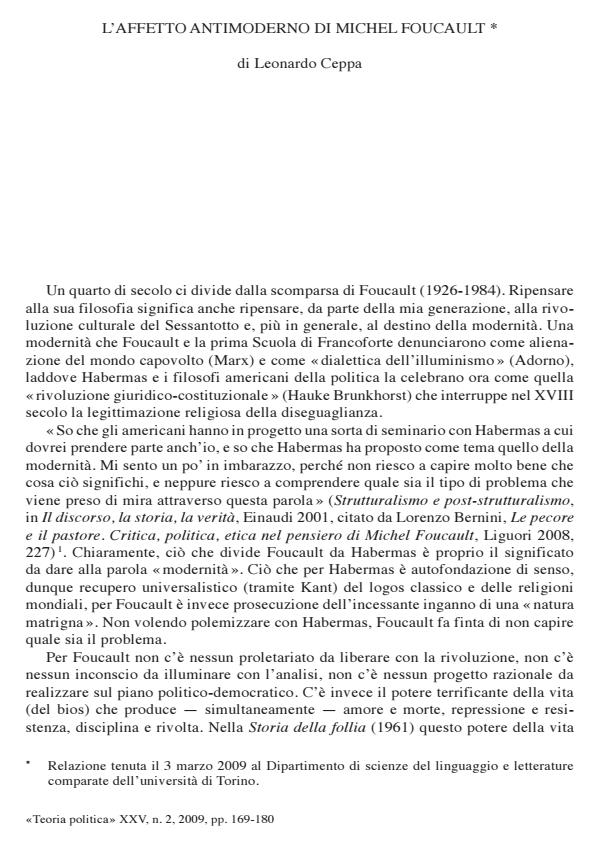L'affetto antimoderno di Michel Foucault
Journal title TEORIA POLITICA
Author/s Leonardo Ceppa
Publishing Year 2009 Issue 2009/2 Language Italian
Pages 12 P. 169-180 File size 130 KB
DOI 10.3280/TP2009-002009
DOI is like a bar code for intellectual property: to have more infomation
click here
Below, you can see the article first page
If you want to buy this article in PDF format, you can do it, following the instructions to buy download credits

FrancoAngeli is member of Publishers International Linking Association, Inc (PILA), a not-for-profit association which run the CrossRef service enabling links to and from online scholarly content.
Foucault’s anti-modern effect - According to the author, two different approaches to modernity are now competing. The first one (coming from Schopenhauer and Nietzsche) underlines the irrational and voluntaristic nature of any moral code and political power. The second one (coming from Rousseau and Kant) grounds progress and legitimacy upon democratic, legal and moral universalism. Foucault's philosophy of life belongs to the first of these approaches. This is where the clash with Habermas, belonging to the second approach, becomes poignantly significant. At first, for Foucault, the power of sovereignty represses life, whereas insanity and madness preserve a transcendent meaning of liberation. Later on, life moulds the inside like a pleat of the outside, subjectivity becomes an effect of power. In Foucault's anti-humanism, Man and God die together like far gone delusions that are recaptured into nature. Schopenhauer's compassion becomes sharp diagnosis of the many tortures inflicted upon man's body, whereas Zarathustra's heroism becomes on the one hand neo-stoical aesthetics of existence and on the other political revolutionary anarchism.
Leonardo Ceppa, L'affetto antimoderno di Michel Foucault in "TEORIA POLITICA" 2/2009, pp 169-180, DOI: 10.3280/TP2009-002009